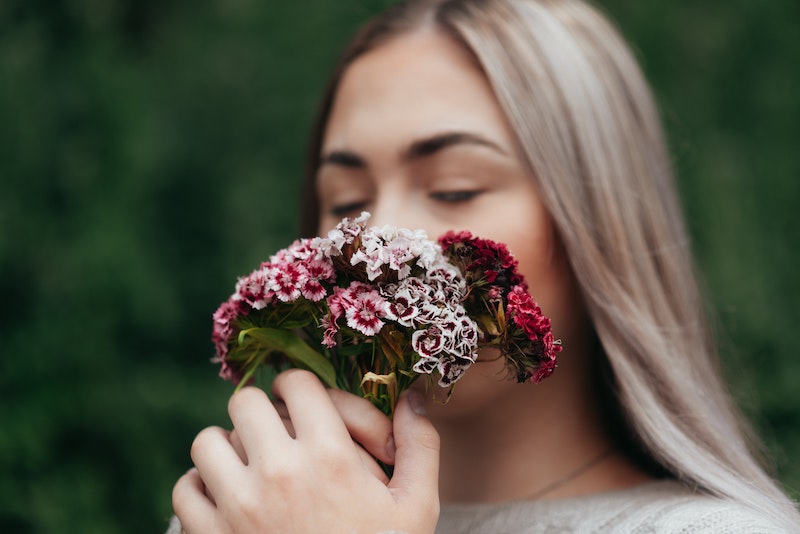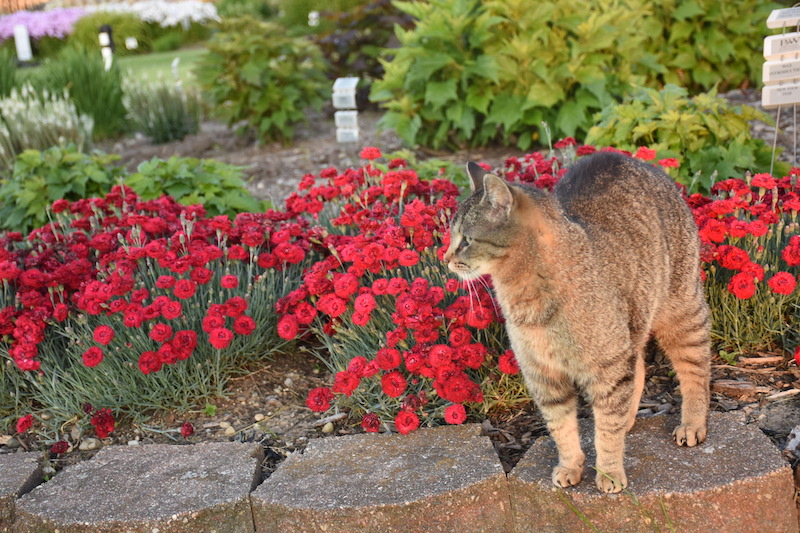Dianthus (also called carnations and pinks) have flowers that are all edible and not poisonous. They are often used to decorate dishes and have a spicy clove-like flavor. The leaves and stems, however, may cause irritation and should not be consumed. They can cause mild skin irritations, so care should be used when working around these plants. You will want to wear garden gloves and long-sleeved work shirts.
If you do come in contact with the plant leaves, wash your skin with soap and water. You can also use an over-the-counter hydrocortisone cream on your skin for relief. If you do not see immediate relief or are uncertain of what plant is causing you discomfort, contact your physician or poison control center immediately. Symptoms can vary from person to person, so it is always advised to seek professional help if you have questions.

Is Dianthus Poisonous to Children
Dianthus leaves may cause skin irritations in children that come in contact with the plant. If your child has had contact with dianthus plants, wash their skin with soap and water. You may also want to give them a bath with a bit of oatmeal added to soothe and calm their skin. It is not common for children to become ill from dianthus, but if you are unsure as to what plant they may have had contact with, always call your physician or poison control center for advice on what to do next.
Is Dianthus Poisonous to Dogs
Yes, dianthus is toxic and poisonous to puppies and dogs. They may experience vomiting, diarrhea, nausea, pain in the abdominal region and difficulty breathing. If you suspect that your animal has ingested or come in contact with dianthus plants, call your veterinarian immediately.
Is Dianthus Poisonous to Cats
Yes, dianthus is toxic and poisonous to kittens and cats. They may experience vomiting, diarrhea, nausea, pain in the abdominal region and difficulty breathing. If you suspect that your animal has ingested or come in contact with dianthus plants call your veterinarian immediately.

Is Dianthus Poisonous to Other Animals
Yes, dianthus is toxic and poisonous to all animals. This includes horses, pigs, goats, chickens, and other homestead and domestic livestock. If you suspect that your animal has ingested or come in contact with dianthus plants, call your veterinarian immediately.
Symptoms of Dianthus Poisoning
Always check with your doctor or veterinarian for guidance if you suspect dianthus plant poisoning. Here are some common symptoms to look out for:
- Gastrointestinal pain
- Vomiting
- Bloody Diarrhea
- Nausea
- Difficulty breathing
Preventing Dianthus Poisoning
The best way to prevent dianthus poisoning is with planning and attention. If you have small children and animals and feel you cannot control where they play and roam, consider moving your dianthus to a protected area. You can safely plant dianthus in elevated planters, hanging baskets, and behind fences, where children or animals will not have access.
Pet Poison Helpline
If something were to happen to your furry friend, and you suspect that they are suffering from dianthus poisoning, there is a poison control hotline to call for 24/7 vet advice. It is called the Pet Poison Hotline, and their phone number is (855) 764-7661.
Sources:
"Carnation." American Society for the Prevention of Cruelty to Animals. aspca.org
"Dianthus." North Carolina Extension Gardener Plant Toolbox. plants.ces.ncsu.edu
 |
Author Janice Cox - Published 06-30-2022 |


